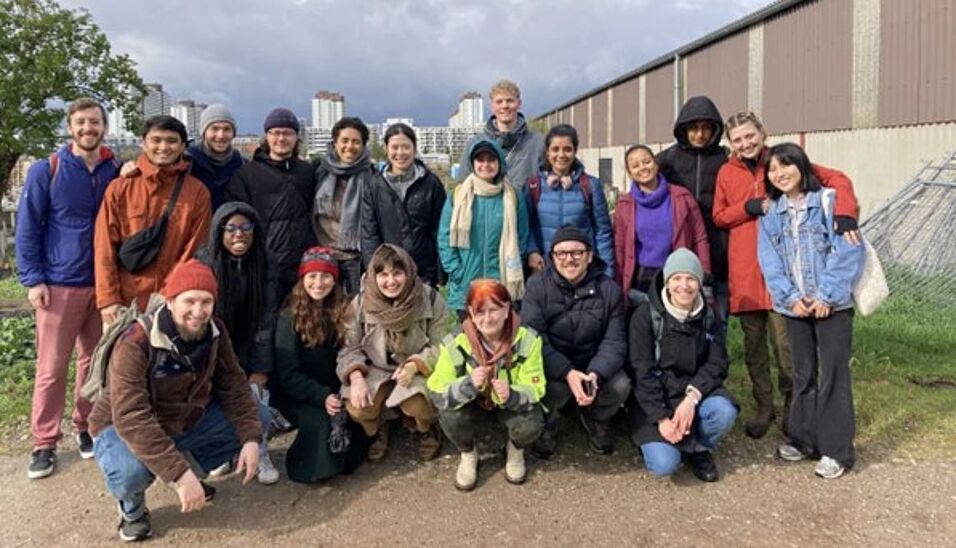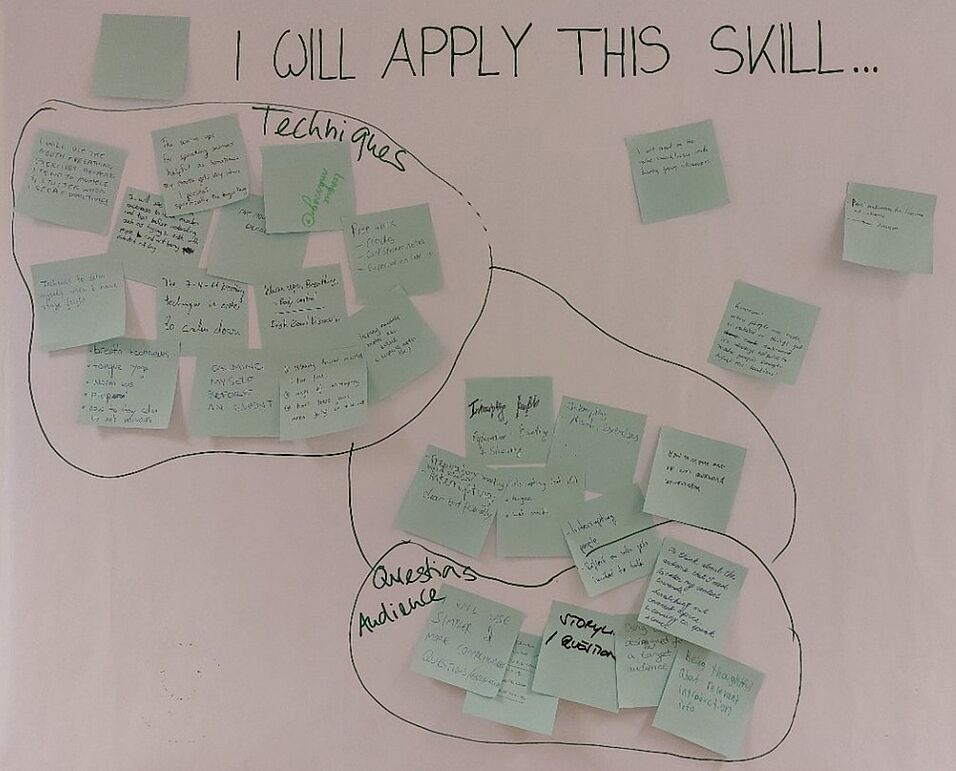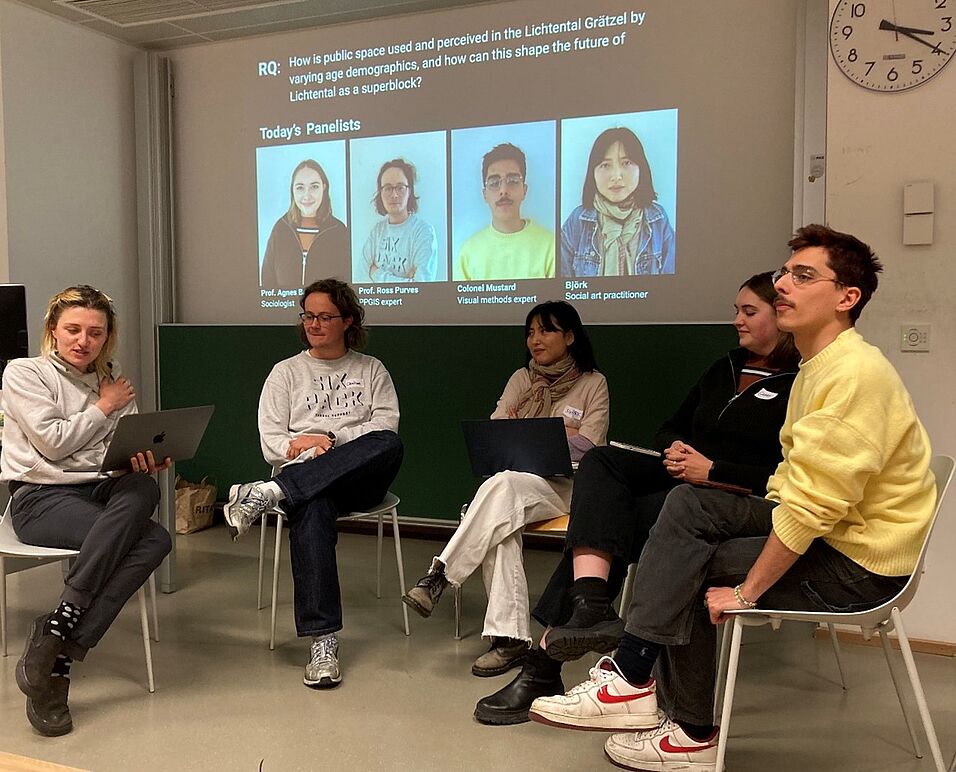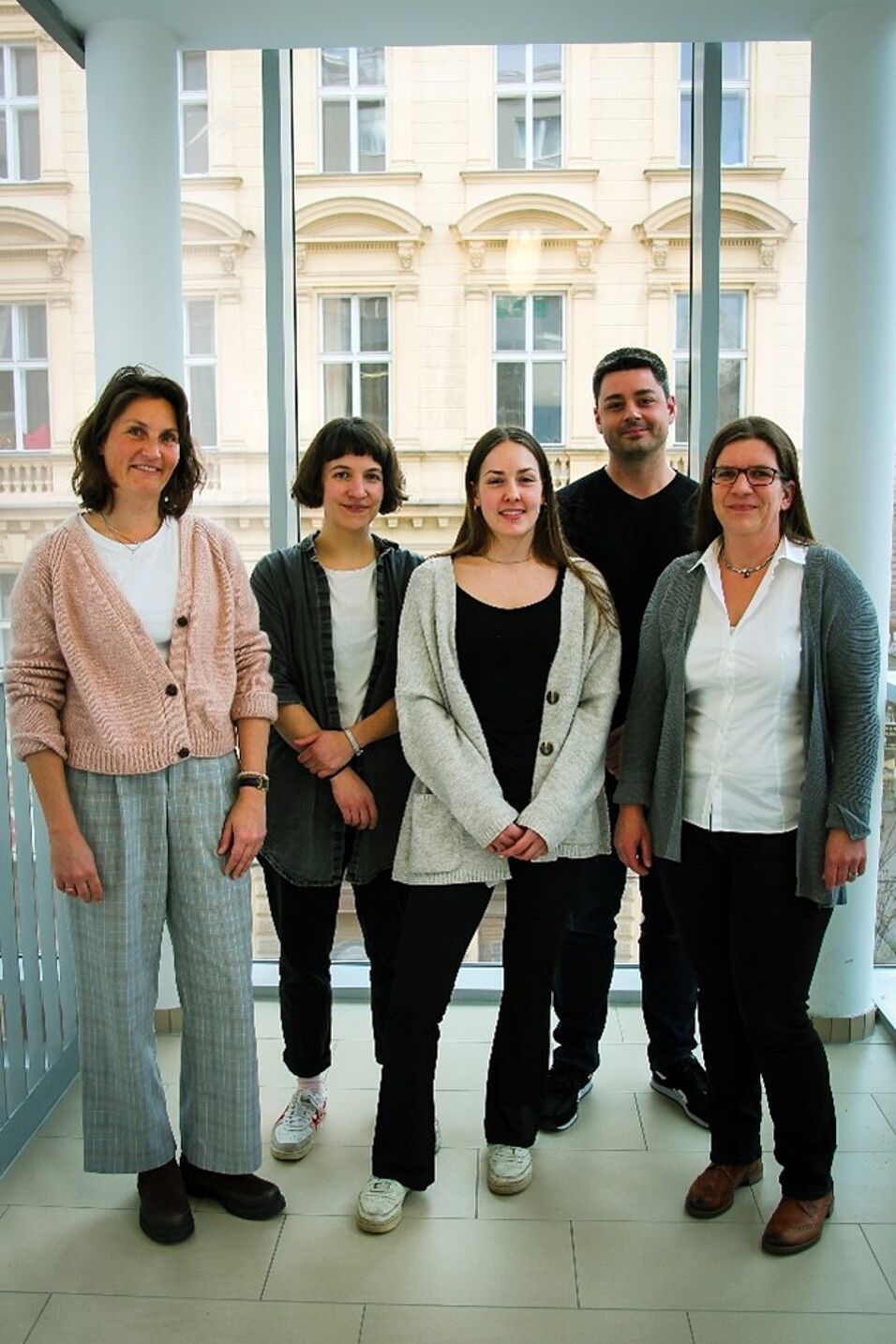Delving into urban complexity by researching Superblocks, or Super-Grätzl, as coined in Vienna, underpins the need for inter- and transdisciplinary skills and in-depth knowledge about different methodologies for urban studies. Therefore, for the second year in a row, the Urban Studies working group at University of Vienna organised a 5-day long Spring School on transdisciplinary methods and skills for the current cohort of 36 international students of the Erasmus Mundus joint Master in Urban Studies (4CITIES).
The Spring School took place from March 31st to April 5th, 2023. The planning concept of Superblocks served as a common thread for testing and experimenting with the newly learned methods. Framed by a guest lecture on “Neighbourhood Experiments & Superblocks” by Melis Günay (HafenCity Universität Hamburg), the students participated in different methods training seminars, a workshop on science communication and moderation by Marlene Nowotny (ORF Science), and visited the residential project Alterlaa as well as the refugee relief organization “House of Hope” for even more urban inspiration. On the last day, the students applied their newly attained skills and presented their creative ideas for the implementation of the Super-Grätzl in Vienna.
Why Superblocks and Super-Grätzl?
The concept of Superblocks involves the creation of large urban residential blocks that prioritize pedestrian and bicycle traffic over that of automobiles. Superblocks are typically designed with open and green spaces to benefit the residents. In turn, these features aim to reduce traffic and noise pollution within the residential block, promote more sustainable modes of transportation, and create more liveable and attractive urban spaces.
First implemented in Barcelona, the Superblock concept has been reproduced in various cities around the globe. The City of Vienna, for instance, started a pilot project “Super-Grätzl Favoriten” in the 10th District, but with a Viennese twist, as “Grätzl” is a local term meaning neighbourhood or immediate surroundings. Other initiatives, e.g. the Agendagruppe Lichtental, organized by residents also embrace the goal of transforming the Grätzl Lichtental, situated in the 9th district, into a Super-Grätzl through bottom-up, citizen driven processes.
Methods training
Urban challenges are complex and multifaceted: Poverty, socio-spatial inequality, or climate burdens cannot be solved by technical or engineering solutions only as they are deeply embedded in social, economic, political, and cultural settings. To enable the 4CITIES students to better understand and address these complex problems, the Spring School offered training in transdisciplinary skills and three different methods courses:
Digital Participatory Mapping (summary by Stan HILLEN, 4CITIES student)
During the workshop on Digital Participatory Mapping led by Anna Kajosaari from the Austrian Academy of Sciences - Institute for Urban and Regional Studies, my fellow students and I designed an online participatory mapping survey using the Maptionnaire-tool and asked participants to specify their level of happiness or sadness at particular locations, as well as the reasons behind their emotions. The workshop provided us with valuable insights into how digital participatory mapping tools can be utilised for research and participatory planning. One of the key takeaways from the workshop was the importance of incorporating community involvement in urban planning and decision-making. Through participatory mapping, citizens can provide valuable information on their experiences and perceptions of urban spaces that can inform policy decisions and shape the future of cities. Additionally, the workshop highlighted the potential of digital tools in enabling greater accessibility and inclusivity in participatory mapping initiatives, as it allows for a wider range of individuals to provide their input regardless of their physical location or mobility. By democratising the data collection and analysis process, participatory mapping can empower communities to play a more active role in shaping their environments and improving the quality of life in their cities.
Space analysis and visual methods (summary by Stan HILLEN, 4CITIES student)
In this workshop led by Sandra Guinand we explored space analysis and visual methods using identified areas in the 9th district of Vienna as a case study. Through hands-on experience in the field, we learned photography tools can be used as effective means of collecting data. This was done by first enjoying an in-class lecture, followed by field work in the 9th district. During the workshop, I had the opportunity to analyse Servietenplatz as part of my project, focusing on the activities that took place in the square. I utilized various photography tools, including taking pictures and capturing a timelapse, to gather data. In total, there were ten different activities identified, including four types of commercial activities and six types of leisure activities. These findings were based on my visual analysis and observations during the workshop.
Complex Adaptive Systems (summary by Fabian WINDHAGER, 4CITIES Student Assistant)
James Vandenberg discussed the concept of Complex Adaptive Systems (CAS) in urban studies and how they can be analysed using Casual Loop Diagrams, which can be created with the open sourced software, Vensim. CAS are a type of system where diverse agents interact with one another, leading to unpredictable emergent behaviour and outcomes. Cities are an excellent example of CAS, as such have a wide range of actors, such as individuals, businesses, and institutions, interacting with one another in various ways. By using a CAS lens, the students can analyse urban interconnections and understand how small changes can lead to significant impacts that transform the behaviour of the entire system. Moreover, the method can be used in a participatory manner, complementing interviews and other qualitative data collection methods. Finally, Causal Loop Diagrams can be used as a foundation for creating stock-to-flow diagrams and constructing quantitative system dynamic models, which provide a more comprehensive understanding of the system's behaviour.
Transdisciplinary skills
Transdisciplinary approaches are designed to address contemporary societal challenges (‘real world’ challenges) by mutual learning and knowledge exchange between a wide range of urban actors with the aim of co-producing new knowledge, which is system knowledge, target knowledge and transformation knowledge. This requires specific skills from transdisciplinary researchers to successfully interact with different urban actors, their different roles, and their specific knowledge. More specifically, moderation and communication methods are vital mechanisms that support student researchers in fostering joint experimentation and cultivating creative solutions to tackle complex ‘real world’ challenges. In order to enhance students’ skills, Marlene Nowotny from ORF Science trained the 4CITIES students during a workshop on science communication and moderation.
Reflection and lessons learned
The 5-day-long collaboration between students, lecturers, organizers, and external guests fostered creativity and a sense of collaborative goal-seeking. This intensive teamwork allowed for innovative ideas on the “Super-Grätzl” implementation in Vienna developed by the students within a short period. A lively fish-bowl discussion after the method training provided space for exchange on key learnings. The final students’ presentations represented the highlight of the 4CITIES Spring School 2023. Students had the chance to present their ideas which incorporated their methods learnings and skills realized throughout the Spring School. The interaction with Lena Dorner, cofounder of the “Agendagruppe Lichtental”, stimulated interesting discussions and provided students with ‘real world’ feedback on their ideas.
Overall, the Spring School's structure and the diverse entry points into urban research allowed students to test, experiment, and to engage, but to also bring in their personal individual, cultural and disciplinary backgrounds which made the five days an enriching experience for all. Furthermore, students also started to think how to deepen and apply what they have learned in their further studies and in their master's theses.
The 4CITIES Spring School organizer team would like to express their sincere appreciation to all 36 4CITIES students, to the three lecturers Sandra Guinand, Anna Kajosaari and James Vandenberg, external guests Lena Dorner and Marlene Nowotny, and the tutors Maria Baesch and Leon Theilen for their valuable contributions and support!
The 4CITIES Spring School 2023 organizers: Kerstin Krellenberg, Yvonne Franz, Ruth Siebenaller, Julia Thurner, Benno Urschler and Fabian Windhager
Text by Ruth Siebenaller, 4CITIES student assistant




